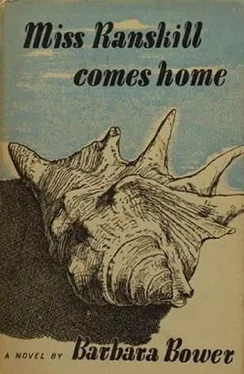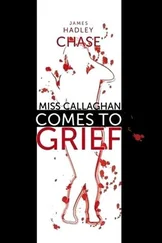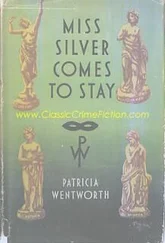The Magistrate had been more general.
‘This particular sort of case is being repeated day after day all over the country. It is one of the evils of war. These boys are too young to differentiate between crime and what I can only call legalised crime. Don’t mistake me, Miss Ranskill, I am not a pacifist, I can see the difference between the public executioner and the common murderer: the one is the servant of the community, the other is a slave to himself. In these days, most of our young men are public executioners. It is difficult to explain that to children and stimulate their patriotism though. Train-busting would be a crime in peace-time, but in war it is a triumph. These boys read about successful Commando Raids and think it would be thrilling to be a Commando. They can’t go to Germany, but they can break into empty houses and have some of the fun (the imagined fun) of being a Commando.
‘Remember another thing, these boys are too young to remember peace conditions properly. Four years, more now, is a long time in a child’s life. The best people in the country, the disciplined younger people are mostly out of the country. All their examples are gone and their fathers are away. Old fogies like myself can’t do a great deal of good though we try our best. Yet these children must be saved or the war will be a mockery and we shall only have bred a race of hooligans who will menace peace as the Germans have menaced it.
‘If you make yourself responsible for the boy, you may not have an easy time. Don’t spoil him, don’t sentimentalise over him, but show him the past and let him look at the future.’
Miss Ranskill remembered all this as she glanced across at the boy. His face was a little more relaxed than it had been when he shuffled beside her out of the Town Hall past the craning onlookers and into the chill of the Market Square.
The parting with his stepfather had been brief.
‘You try and mend your ways, my lad, and be a credit to your Mum and me. She’ll be sending your clothes along for you. Goodbye.’
The boy had stood looking down at the muddy pavement.
‘Saucy, eh? Well, I’ll give you another chance. Goodbye.’
The boy, prompted by a nudge from Miss Ranskill, had muttered ‘Goodbye’, but he had addressed a leaf in the gutter, and had continued to regard it until his stepfather joined some waiting acquaintances on the opposite pavement. His coarse laughter sounded across the square. He tilted his cap at an angle and remarked in a voice evidently meant to be heard:
‘Surly little bastard! I wish the old fool joy of that one.’
‘Come along,’ said Miss Ranskill, ‘let’s go to the station. We can get something to eat there.’
The meal had not been a very great success. The boy drank a great deal, cup after cup of urn-tasting tea, but he only fiddled with the sausage rolls, crumbling the pastry into flakes and kneading the meat between finger and thumb. Miss Ranskill guessed that his hands were hungrier for occupation than was his body for food. Every movement of those hands reminded her of the Carpenter’s, and she wished he would keep them still.
Conversation was difficult. One could not discuss the events of the afternoon, but she did make a little attempt to explain the future because the boy had followed her hopelessly as a lost dog, trailing a strange pair of heels, without question or interest.
‘Colin.’
He had glanced up at her.
‘You do understand, don’t you, that you are coming to stay with me in Hampshire?’
He nodded.
‘The house we’re going to live in isn’t far from the sea. You’ll like that, won’t you?’
‘I don’t mind.’
She went on to describe the house, and then told him about the little potting-shed that he could use as a workshop in the evenings and on holidays.
‘Won’t it be rather nice to have a workshop of your own?’
He flushed and bent his head still lower over his plate.
‘Not if there’s no wood.’
The flush deepened. Miss Ranskill remembered that one of the charges against him had been one of stealing wood, finely-grained wood for boat-building from the workshop of his father’s successor. He had taken some tools too. He had also stolen a bicycle lamp from another house and a tin of varnish from the local shop. All these things had been found in an old chicken-house at the bottom of his mother’s garden. He had been trying to equip the chicken-house as a workshop. The light shining through the window had given him away to the policeman. The boy had not remembered the need for black-out curtains.
Miss Ranskill waited until the flush had faded from his cheeks. Then she spoke again:
‘But there will be wood this time. You can buy some if you work in the garden and earn money.’
‘Can I?’
It was the first responsive thing he had said, and though he ducked his head again immediately, Miss Ranskill was satisfied.
Later on, she would tell him stories about his father, but not just now while his mind was closed and clutching on misery. One thing must make room for another.
There’s one thing I reckon you can’t do, Miss Ranskill, you can’t hurry comfort. You can’t give happiness while a misery’s still there. I remember when I was a little lad and my pup had been run over, they wanted to give me a new one straight off. That didn’t do. I’d got to get shut of a part of the misery first.
No, she must not hurry comfort.
That was why, so far, she had left him alone with his misery, allowed him to hunch himself up in the far corner of the carriage, to twiddle with the window-strap and swing his legs, now with seeming nonchalance and now listlessly. Even his knobbly and rather grubby knees looked forlorn. His face, travel-stained and white with misery though it was, still carried the likeness of his father’s. His right hand lay relaxed on the seat of the carriage.
Miss Ranskill was not sure now whether he was asleep or not. His lips had parted a little.
She took the sea-shell from her pocket and laid it on the seat two inches from his fingers. Then she lifted his hand gently and laid it on the cool curved surface. He shrugged away from her resentfully, nuzzling his head into the corner between the upholstery of the seat and the window-blind with a movement suggesting that of a small wild animal, carried in from darkness to the publicity of a room.
But she noticed, when she had returned to her own seat, that his fingers were gripping the shell.
It was time now to close her eyes.
Presently she became conscious of small scuffling movements in the far corner of the carriage. She did not dare to look yet.
In her own mind, the island was taking possession of the railway carriage.
She would wait for two minutes and then she would open her eyes. She began to count sixty twice over and slowly.
One leg was crossed over the other, his elbow was pressed into his knee, the shell was against his ear and he was listening.
The water-music was pouring into his mind, sweeping it clear of trouble, lulling the nightmare thoughts and making peace. And, as the magic of the shell did its work, the boy’s face changed. Surliness slipped away, the grey eyes lost their furtiveness and the lips smiled. He was enchanted back into himself again.
His fingers pressed harder against the shell, and Miss Ranskill, who remembered her own listening, knew that he was hearing a crescendo now – a tumult and surging of many-voiced waters.
Suddenly he dropped the shell. His face puckered and his right hand groped at emptiness until Miss Ranskill reached him. He was a little boy, haunted by ugliness, bewildered and softened by sudden beauty, crying into her shoulder, ‘I didn’t want to be bad.’
Читать дальше












